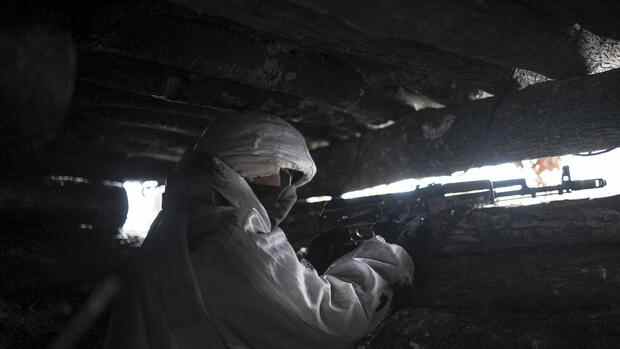Economic sanctions were already part of the great powers’ arsenal of weapons in the Peloponnesian wars between Athens and Sparta. They failed, for example, when the international community failed to prevent then-Italian dictator Benito Mussolini from conquering Abyssinia (now Ethiopia) in 1935. Their ineffectiveness meant that British Prime Minister Neville Chamberlain had only the choice between appeasement and war in the 1938 Munich Agreement.
The American historian Nicholas Mulder comes to the conclusion in his new book “The Economic Weapon” that economic sanctions only have an effect if they hurt. In a hyper-networked world economy like today’s, this does not only apply to the target country of the sanctions – in this case Russia. Even those who impose sanctions must be willing to bear the economic costs.
The power gamble between Russia and the West in the Ukraine crisis is not decided by the threatening backdrop, but by resilience to economic sanctions. The Russian President is not only counting on his people’s greater ability to suffer, this time Vladimir Putin has taken precautions.
Top jobs of the day
Find the best jobs now and
be notified by email.
Above all, he drew lessons from the last wave of sanctions after the annexation of Crimea in 2014 and strengthened Russia’s financial resilience. The country’s foreign currency reserves are now well over $600 billion, although the dollar share has fallen to less than 20 percent. Only China, Switzerland and Japan have put more foreign currencies aside.
Conversely, the foreign debt of Russian banks and companies in the second quarter of 2021 was the equivalent of almost 400 billion dollars – and was therefore more than covered by the currency reserves.
A cold spell could put the ability to suffer to the test
At the same time, the sharp rise in oil and gas prices filled the coffers of the national sovereign wealth fund to almost $200 billion. The national debt is around 20 percent – a value that many western countries can only dream of.
Handelsblatt International correspondent Torsten Riecke analyzes interesting data and trends from all over the world in his weekly column. You can reach him at [email protected].
(Photo: Klawe Rzeczy)
None of this makes Russia invulnerable to Western sanctions. Excluding Moscow from the Swift international payment information system, while controversial in the West, remains a viable option that could do serious damage to the Russian economy.
Added to this are the high-tech supply embargoes threatened by the EU and the USA and the halt to the Nord Stream 2 Baltic Sea pipeline. However, it is in the energy sector in particular that the Europeans face an endurance test, as around 40 percent of European gas imports come from Putin’s empire.
At the same time, the gas reserves – an important crisis buffer for resilience – in Germany are only less than 40 percent of the total capacity. A cold spell could put the endurance of the economy and consumers to the test.
“Today, geopolitical strength is determined not by how much economic power one can wield, but by how much pain one can endure,” writes Bulgarian political scientist Ivan Krastev.
Today’s geopolitical opponent is no longer someone behind an iron curtain, as it was during the Cold War, but someone with whom you trade, from whom you buy gas and to whose country you export high-tech goods. Not “soft power”, but resilience is the order of the day.
This is not good news for Europe, which has so far focused its geopolitical power almost exclusively on its “soft power”. Especially since the West seems ill-equipped for a bitter struggle with Russia. In addition, China is obviously willing to cushion the economic consequences of any gas supply failures from Russia to Europe with new long-term purchase agreements.
For the West, this means that economic sanctions only work if they are tough, enforced unanimously and the EU in particular is willing to pay an economic price for them.
More: Putin meets Xi in Beijing: Together against the West

